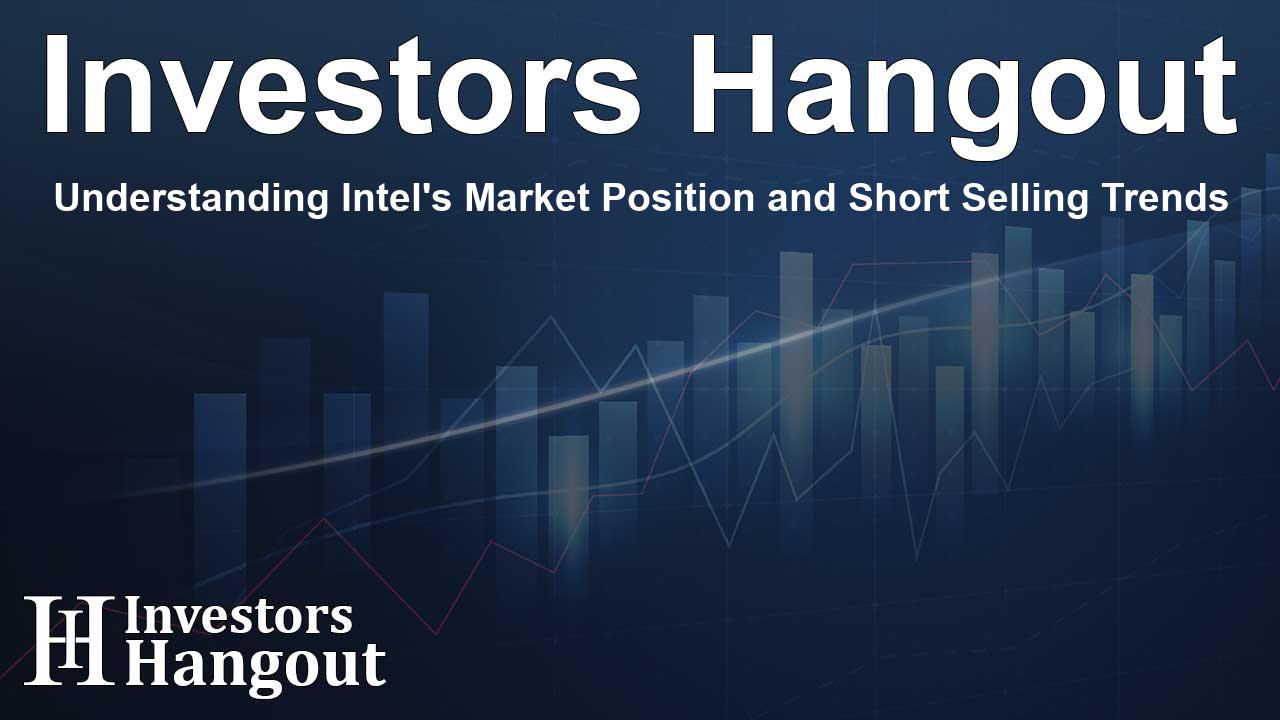Understanding Intel's Market Position and Short Selling Trends

Intel's Current Short Selling Landscape
Intel (NASDAQ: INTC) recently revealed some intriguing statistics regarding its short percent of float, which has surged by 12.64% since the last report. The figures indicate that approximately 128.33 million shares are currently sold short, accounting for 2.94% of all regular trading shares available. Given the current trading volume, it is estimated that traders would need around 1.41 days to cover their short positions on average.
Importance of Monitoring Short Interest
Understanding short interest is critical for assessing market sentiment surrounding a stock. For those unfamiliar, short interest represents the total number of shares that have been sold short but remain unsettled. This practice, known as short selling, involves traders selling shares they do not own, in the hopes that the stock price will fall. Profits come when the stock price decreases, while losses occur if the stock rises.
Market Sentiment Indicators
Tracking short interest is pivotal as it serves as an indicator of market sentiment toward a particular security. A rise in short interest typically suggests that investors are adopting a more bearish disposition, whereas a decline can imply a shift toward a bullish outlook.
Intel's Short Selling Trends Over Time
Graphical Analysis of Intel's Short Interest
Though a graph of Intel's short interest over the past three months has been omitted here, the increase in shorted shares signals a noteworthy trend. While not a definitive indicator that the stock price will decline imminently, these stats emphasize that a larger volume of shares are being shorted, warranting attention from potential investors.
Comparative Analysis with Industry Peers
Evaluating a company's performance against its peers is a common practice among analysts and investors. Peers are companies that share similar characteristics, including industry type, size, and financial structure. You typically identify a peer group through detailed financial reports or comparative analyses.
Recent data suggests that Intel's peer group has an average short interest of 5.96%. This figure indicates that Intel has a lower short interest compared to many of its competitors, which might suggest a more favorable market perception when stacked against its industry peers.
The Silver Lining of Increased Short Interest
Interestingly, an uptick in short interest can occasionally be seen as a bullish signal for a stock. As the market adjusts, savvy investors often look for opportunities to capitalize on these movements. Monitoring how short interest develops may provide valuable indicators for potential gains.
Wrap Up on Intel’s Market Position
In conclusion, while Intel's stock may be viewed through various lenses, the current figures certainly highlight a dynamic trading environment. As short interest relativity presents potential investment risks and opportunities, understanding these metrics will be essential for informed decision-making. Keeping abreast of these trends can help investors navigate the complexities of market sentiment.
Frequently Asked Questions
What does increasing short interest indicate for Intel?
Increasing short interest generally indicates that more investors are betting against Intel, which may reflect bearish sentiment in the market.
How does Intel's short interest compare to its peers?
Intel's short interest is reported at 2.94%, which is lower than the peer average of 5.96%, suggesting a more favorable outlook compared to its competitors.
What are the risks associated with short selling Intel?
Short selling can be risky, especially if Intel's stock price unexpectedly rises, as it can lead to significant losses for those holding short positions.
Can high short interest be a positive sign?
Yes, an increase in short interest can sometimes indicate an imminent price correction, which savvy investors may look to exploit.
What should I consider before investing in Intel?
Before investing, consider the overall market conditions, Intel’s financial health, trading volumes, and how short interest trends may impact your investment strategy.
About The Author
Contact Evelyn Baker privately here. Or send an email with ATTN: Evelyn Baker as the subject to contact@investorshangout.com.
About Investors Hangout
Investors Hangout is a leading online stock forum for financial discussion and learning, offering a wide range of free tools and resources. It draws in traders of all levels, who exchange market knowledge, investigate trading tactics, and keep an eye on industry developments in real time. Featuring financial articles, stock message boards, quotes, charts, company profiles, and live news updates. Through cooperative learning and a wealth of informational resources, it helps users from novices creating their first portfolios to experts honing their techniques. Join Investors Hangout today: https://investorshangout.com/
The content of this article is based on factual, publicly available information and does not represent legal, financial, or investment advice. Investors Hangout does not offer financial advice, and the author is not a licensed financial advisor. Consult a qualified advisor before making any financial or investment decisions based on this article. This article should not be considered advice to purchase, sell, or hold any securities or other investments. If any of the material provided here is inaccurate, please contact us for corrections.
